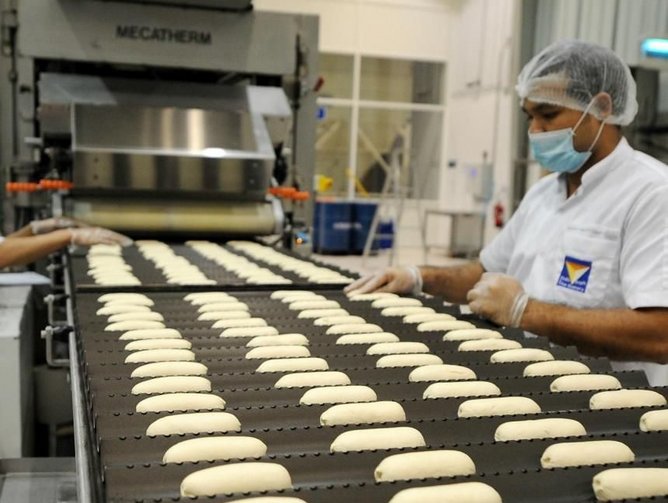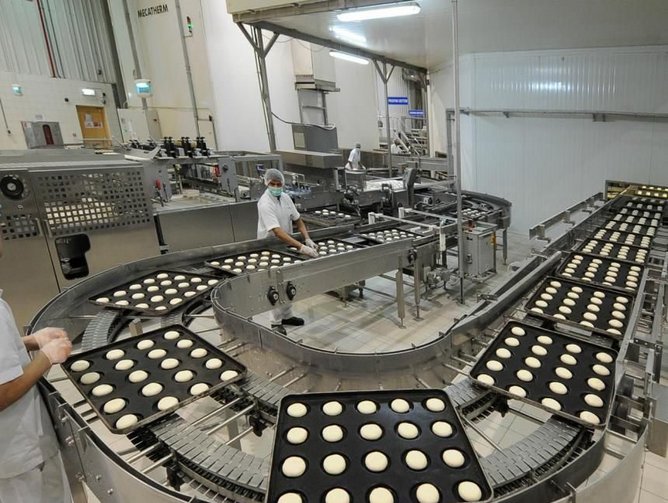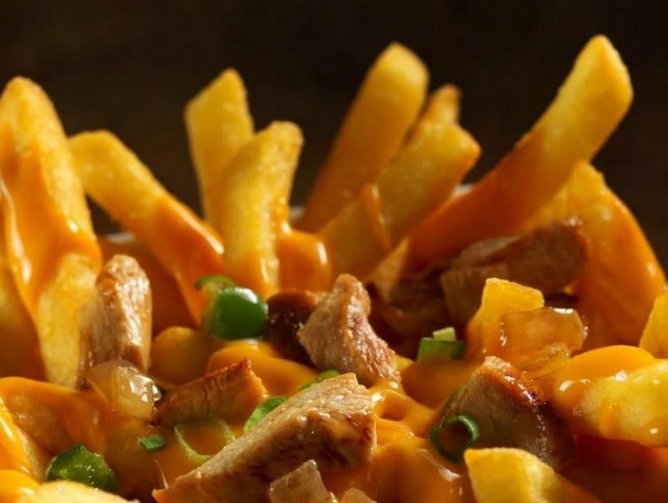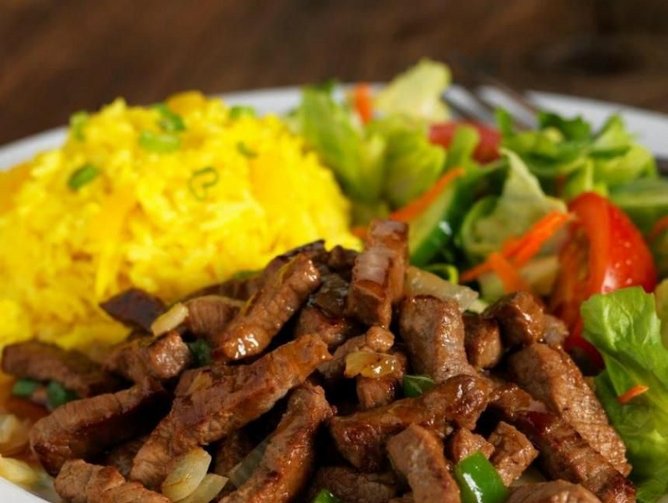Kudu Corp is adopting change at a rapid pace. Fuelled by plans to expand in Saudi Arabia and the rest of the GCC, the quick service restaurant (QSR) operator is also refreshing the Kudu brand and evolving its product range in line with customer demand.
Kudu is already the largest restaurant chain in the country with 337 branches across the Kingdom serving 60 million people a year and employing 5,000 Saudi citizens and residents, and another 60 sites are scheduled to be open by 2017. The concept of quick, fresh, made-to-order meals which include sandwiches, fries and rice options, all made in front of the customer, has proven to be a hit with the natives. Kudu Corp manages four other brands across Saudi Arabia: Al Khafeef, Aal Bal, Can Café and Tea Garden.
Backed by supportive private equity investors TPG Capital and The Abraaj Group, innovation and adaptations are occurring right across the business, with the supply chain team lying at the heart of the push for growth and improvement.
Murat Ungun has been in the QSR industry for more than 24 years and is now Senior Vice President of Supply Chain at Kudu Corp. His role is to lead the development and implementation of end to end supply chain strategy and solutions in every facet of business to support the company’s aims and growth.
“I have worked mostly in the QSR industry and supply chain field where I had the chance to work with many different local and global supplier companies, gaining experience and exposure in all segments of the food, packaging, logistics and service industries,” Ungun explains.
“I have had the privilege of reviewing and contributing to companies I worked for, not from a pure supply chain point of view but from a holistic business perspective like from green field start- ups to acquisitions, from menu management and marketing to sustainability. I feel very fortunate to have been able to gain this experience and exposure, having the chance to work with the best suppliers, companies, teams and people.”
Delivering for Kudu
Kudu’s procurement setup currently comprises a mixture of long term supplier partnerships and in-house production of fresh meat and bakery products, which are also retailed in more than 1,000 stores. The company purchases and distributes more than 2,000 skus to its restaurants via its distribution system, made up of three main and four satellite warehouses.
Ungun’s responsibilities stretch far beyond the supply chain mechanics. He adds: “I am also responsible for strategic sourcing, as well as quality assurance and food safety departments which are foundational and critical elements of a quick service restaurant chain.
“Assuring high quality, safe products in a consistent manner, at an affordable, fair cost to system responsibly and in a sustainable way is the core of what we are trying to achieve in the company. It is not a destination and indeed is an ongoing journey that requires a huge set of efforts, commitment, determination, strategy, collaboration, long term thinking, resource allocation and talent.”
“Our objective is to provide our guests with fresh, healthy, food safe products to their expectations and taste, in a consistent and responsible manner within a friendly, enjoyable and convenient environment.”
Supply chain is also playing a vital role in pushing forward future expansion plans, shouldering the huge task of establishing fruitful partnerships in new territories and setting up new foundations and infrastructure.
Ungun comments: “As a 28-year-old but a very young-spirited company set for strong local and international growth, supply chain and the value that it creates for Kudu Company and its’ guests is one of the foundational drivers for long term and sustainable success.
“When you open a new market, supply chain is the first and foremost element of the equation to unlock the potential. Kudu sees selecting the right partners to work with and setting up a strong supply chain infrastructure as a key to success. To that end, supply chain is an integral part of the company growth, success and profitability.”
Internal transformation
If Kudu is to successfully expand, optimisation of current supply chain processes is paramount.
To ensure that it makes the most out of internal capabilities and supplier expertise, Ungun is spearheading a massive ongoing efficiency assessment to decide what is best kept in-house and what is best outsourced.
“We must fully understand who our outsourcing partners are and what value can be added from outsourcing, and weigh this up with what we are doing ourselves at the moment,” he adds. “It is very important who we select to work with in a long term partnership as the overall aim is to improve the quality of our products and services as well as the way we run.”
Improvements are already starting to be made. For example, a decision has been taken to outsource the supply of trucks rather than maintain its own fleet as it does currently. Working with an international truck rental partner, Kudu will be able to utilise the latest tracking technology to optimise routes and fuel consumption.
Another significant enhancement has been the implementation of a new ERP system which has integrated all business units into one overview, providing much clearer visibility of the whole business. Real time data can now be analysed quickly and accurately to maintain healthy stock levels and give management the information they need to keep control and make meaningful, long term decisions.
Customer-led transformation
As well as adopting internally-driven initiatives, Kudu is also adapting in light of customer feedback. A rollout of restaurant refurbishments will be taking place and a new logo has already been developed, along with new packaging and uniform designs. The menu is also evolving to give customers a wider choice and will now be displayed on digital menu boards in restaurants.
“Our first step was to approach our guests and ask them for their thoughts on Kudu and what they expect from us in the future,” Ungun explains. “We showed them some new product concepts and packaging, uniform, restaurant designs and have taken their feedback on board. The transformation is now going at full speed.”
“We have recently launched rice meals which are doing fantastically well, and have also launched gourmet fries with a cheese sauce, and I can say that these are the best gourmet fries in the region, not only the country! Gourmet burgers will also be an addition to our menu very soon. We are known as a company that serves fresh and healthy products and are working with our customers to produce even fresher and healthier food up to their expectations.”
In terms of the impact on supply chain operations, new products have been carefully sourced and a brand new rice cooking platform has been rolled out across Kudu restaurants. To meet the logistical demand created by opening so many new sites, Ungun is planning to open a new warehouse in Jeddah next year to boost capacity. A mixture of new hubs and optimisation of current warehouse processes, the focus of Kudu’s ongoing assessment, will ensure the company is ready to deliver its products to more Saudi and other GCC customers.
Staying competitive
Continual innovation and enhancements of processes is how Ungun plans to differentiate from competition in the region and gain market share in the future.
“Innovation doesn’t happen by chance,” he says. “It is an outcome of structured and planned efforts and requires a total mind set change, a lot of collaboration, transparency and planned hard work. Periodic business reviews, innovation sessions, benchmarking are all foundational elements that we are applying to break complacency and move the bar up to the next level.”
Selecting partners with the same working ethos is equally as important for Ungun, as is honest and open communication between parties. “Whatever the success we achieve at the store level will be our mutual success so we are together in this,” he adds.
“Being transparent and open for sharing, mutual trust, being a team player committed to our business long term and doing their best to give us the best value are all the foundational components of our supplier selection process. We expect our suppliers to choose long-term benefit of the system over short-term individualistic gains and this is what long-term partnership and our supply chain philosophy requires.”
Looking ahead, Ungun sees supply chain as a crucial contributor to long term sustainability and competitive advantage, and the coming years will provide an exciting test of Kudu’s expansion credentials.
Ungun concludes: “Our job is to further optimise our systems, maximising the value we are giving to our guests while preparing the company for a local, regional and international growth. That requires the best supply chain infrastructure, right talent and best in class supplier partners to work with.
“We need to work around a more agile supply chain structure that will react to rapidly changing consumer needs, market dynamics and risks. Supply chain is a crucial contributor to most companies and creates long-term wealth and competitive advantage for the entire system. The ‘value of supply chain’ will get more prominent and critical to every company every day.”





